Three Smart Girls Grow Up (1939)
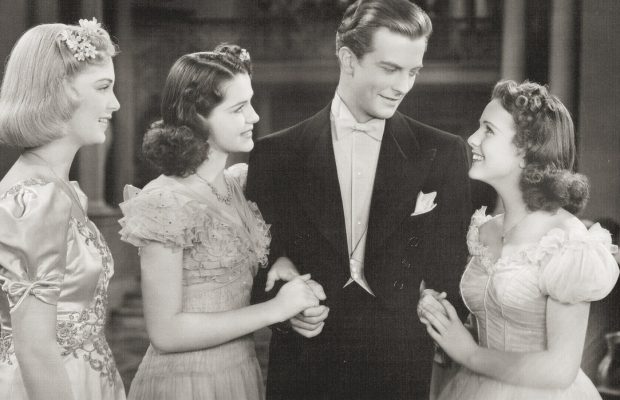
Toronto Film Society presented Three Smart Girls Grow Up (1939) on Sunday, March 31, 1985 in a double bill with Sing You Sinners as part of the Season 37 Sunday Afternoon Film Buffs Series “A”, Programme 10.
Production Company: Universal. Producer: Joseph Pasternak. Director: Henry Koster. Screenplay: Bruce Manning, Felix Jackson. Photography: Joseph Valentine. Editor: Ted Kent.
Cast: Deanna Durbin (Penny Craig), Charles Winninger (Judson Craig), Nan Grey (Joan Craig), Helen Parish (Kay Craig), Robert Cummings (Harry Loren), William Lundigan (Richard Watkins), Ernest Cossart (Binns), Nella Walker (Dorothy Craig), Felix Bressart (Penny’s Music Teacher).
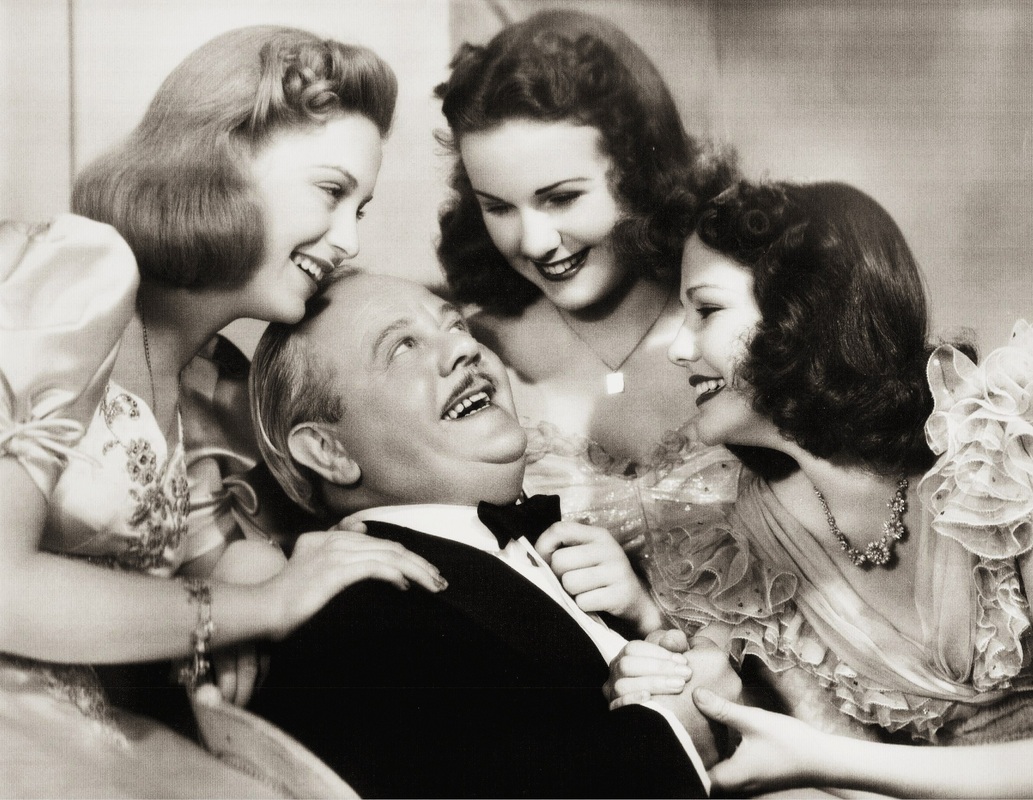
Deanna Durbin’s fifth film, Three Smart Girls Grow Up, was not unlike her earlier movies–Deanna was Little-Miss-Fix-It, this time repairing the romantic involvements of her two older sisters. In the original Three Smart Girls of 1936, Durbin’s first feature, she fixed up the marriage of her parents, pleayed in the first film as in this one by Charles Winninger and Nella Walker. One of the sisters is played by Nan Grey, as in the first film, and the butler in both is Ernest Cossart. So, unlike most current sequels, Three Smart Girls Grow Up had a real feeling of continuity of characters, further strengthened in 1943’s Here to Hold, with Walker and Winninger again Durbin’s parents.
But there never was a star quite like Deanna, certainly no teenager ever elicited the same critical appreciation, which has continued, more or less, close to forty years after her retirement. Variety called Three Smart Girls Grow Up a “Smash…Escape literature with smiles, heart-tug, luster, and a collection of thoroughly nice people, the film is a welcome antidote to the front page headlines. It should tear up [box office] records like they tear up treaties in Europe.” Frank Nugent, of the New York Times, chastised Universal’s publicity for emphasizing Three Smart Girls Grow Up as Deanna Durbin’s first glamorous role, as though that was what audiences wanted of Deanna. Nugent reassured his readers that Durbin “is still her delightful self, a joyously half-grown miss with a fresh young voice, clear eyes, a coltish gait, and the artless art of being as lovely, refreshing and Springlike as nature has made her.” Nugent closes with: “Have we forgotten to mention that Miss Durbin sings? Well, she does and quite well, but not at all glamorously. we like that about her too.”
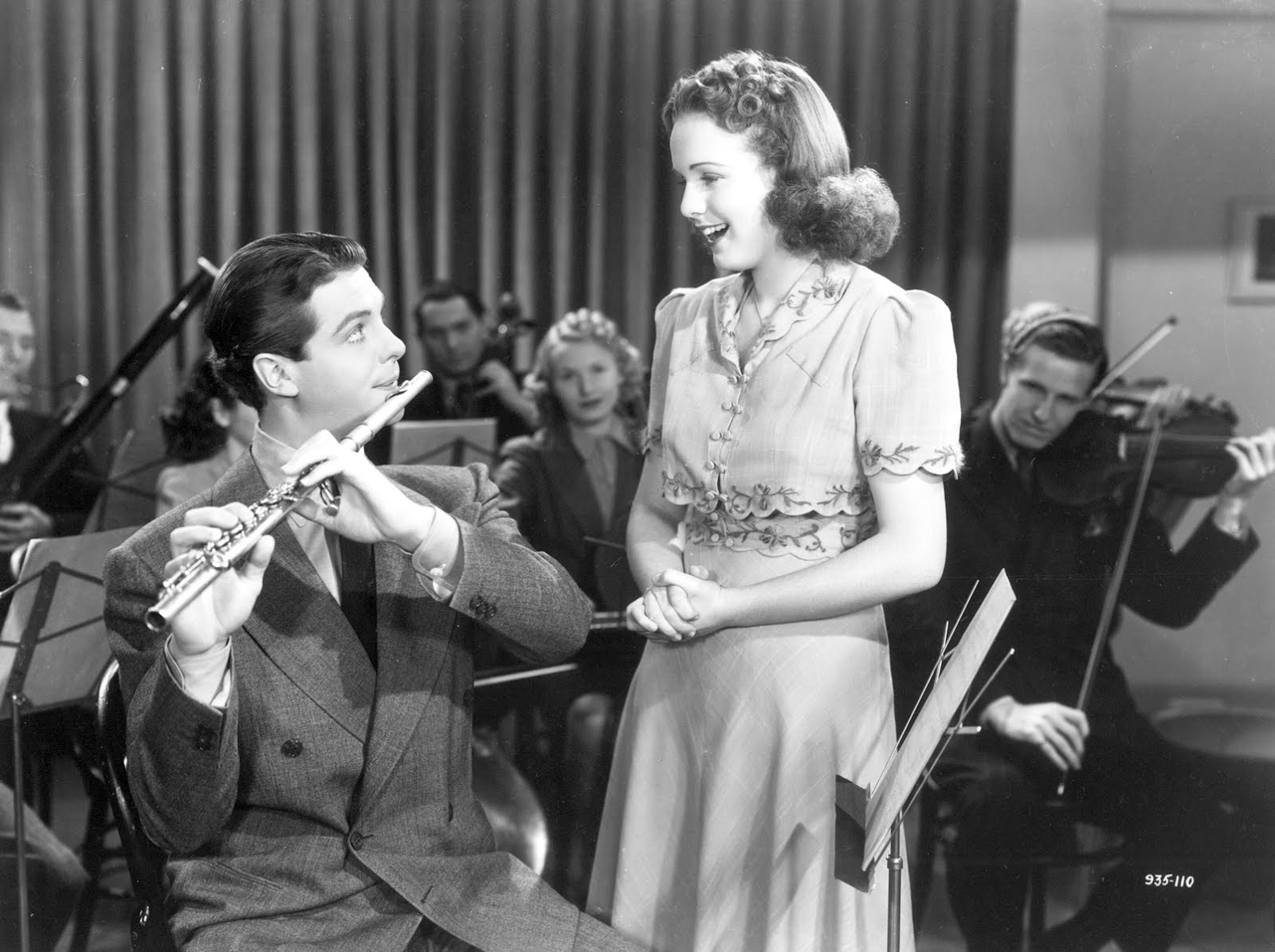
This projected refreshing innocence seemed to be at odds with her recent statements (in a December, 1983 interview in Films & Filming): “I also enjoyed the company of my fellow actors–the leading men who were so much older, like Herbert Marshall, Melvyn Douglas, Franchot Tone, Walter Pidgeon, Joseph Cotten, Vincent Price and Robert Cummings. I did two films with my special friend, Charles Laughton. Working with these talented men helped me so very much and I grew up much faster than the average teenager. What I did find difficult was that this acquired maturity had to be hidden under the childlike personality my films and publicity projected on me.” In the same interview, Durbin concedes her upbringing was: “…very ‘proper’. It was drummed into me that I must never have sex with a man before I was married, and then the next day I was off to the studio where a very different set of rules prevailed. I must admit that it was lovely to be asked and even lovelier to be able to say no…or yes. Part of the fun of being asked meant that I wasn’t a little girl anymore…and that is why I wanted to look glamourous. I couldn’t wait to wear low-cut dresses and look sultry. I remember the day in 1944 when Philippe Halsman from LIFE Magazine came to my home. He said he was going to photograph me ‘looking like an angel’. I answered that I may not know how I did want to be photographed, but if there was one way I certainly did not want to be photographed, it was looking like an angel! He laughed, and the picture he took then more than satisfied me. I’ll admit that for some of public all this must have been hard to understand.”
Charles Winninger (1884-1969) was one of the original old troopers of the entertainment business. He toured vaudeville with his family before the turn of the century, became a stage star in New York in 1909, made some comedy two reelers with Elko Comedy Co., then settled into a long career in supporting roles in films. In addition to the Durbin films, Winninger’s best roles were in Show Boat (1936) and The Sun Shines Bright (1953). Winninger was also noted as Cap’n Andy in the original Broadway production of “Show Boat” in 1927.
Notes by Jaan Salk

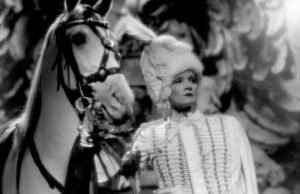
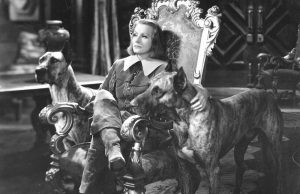
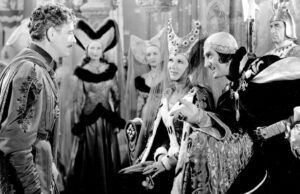






Leave a Reply